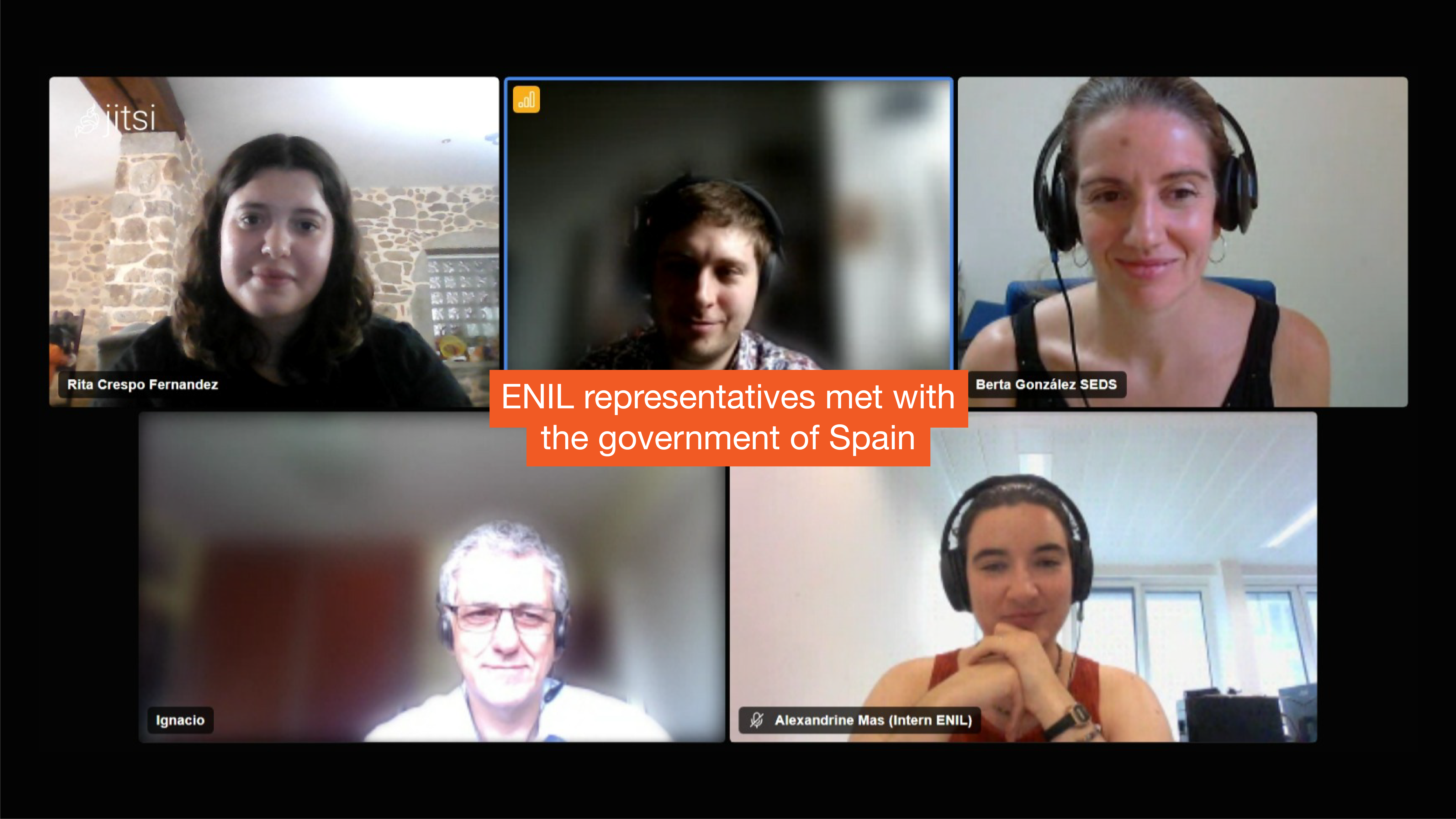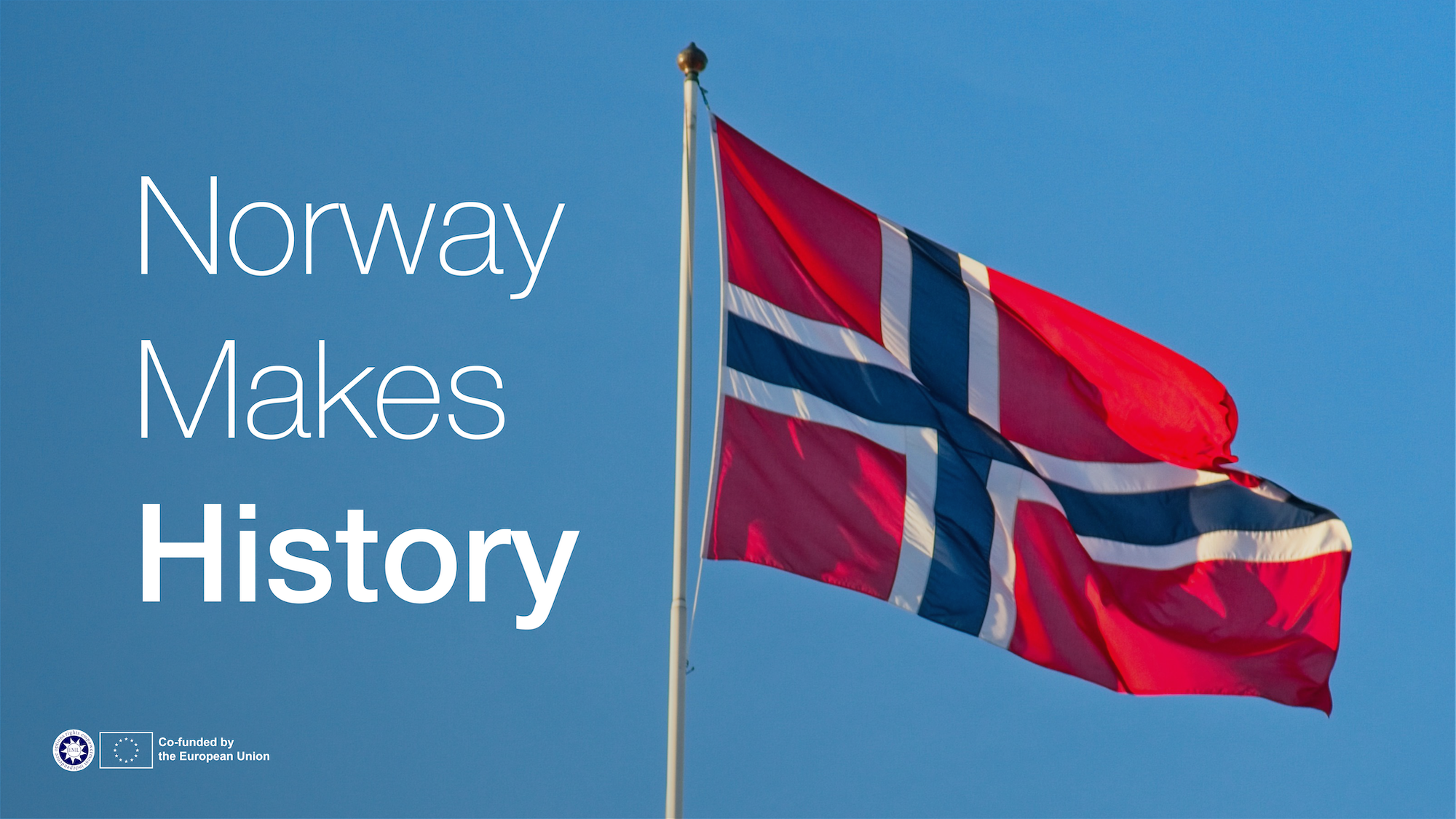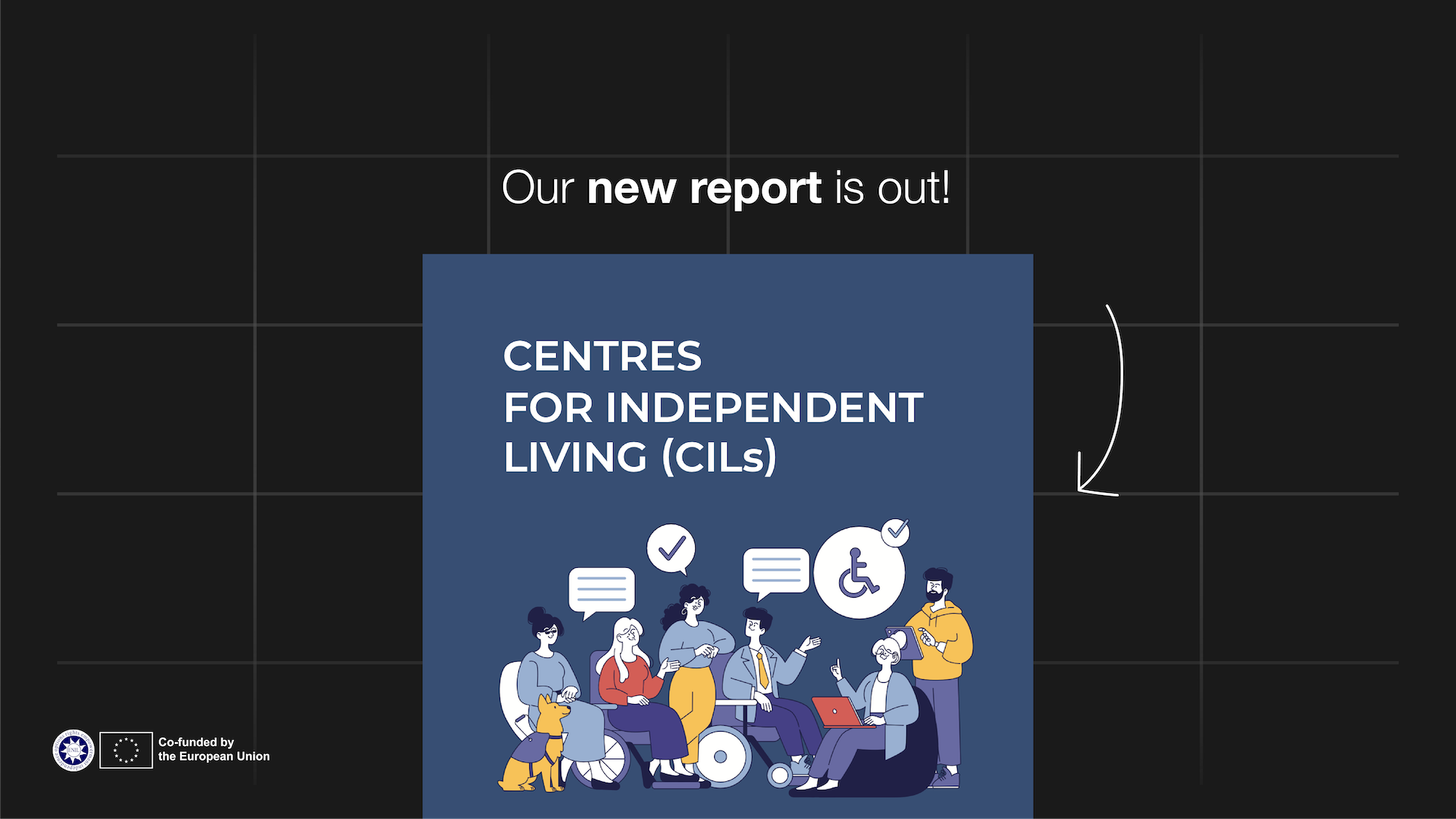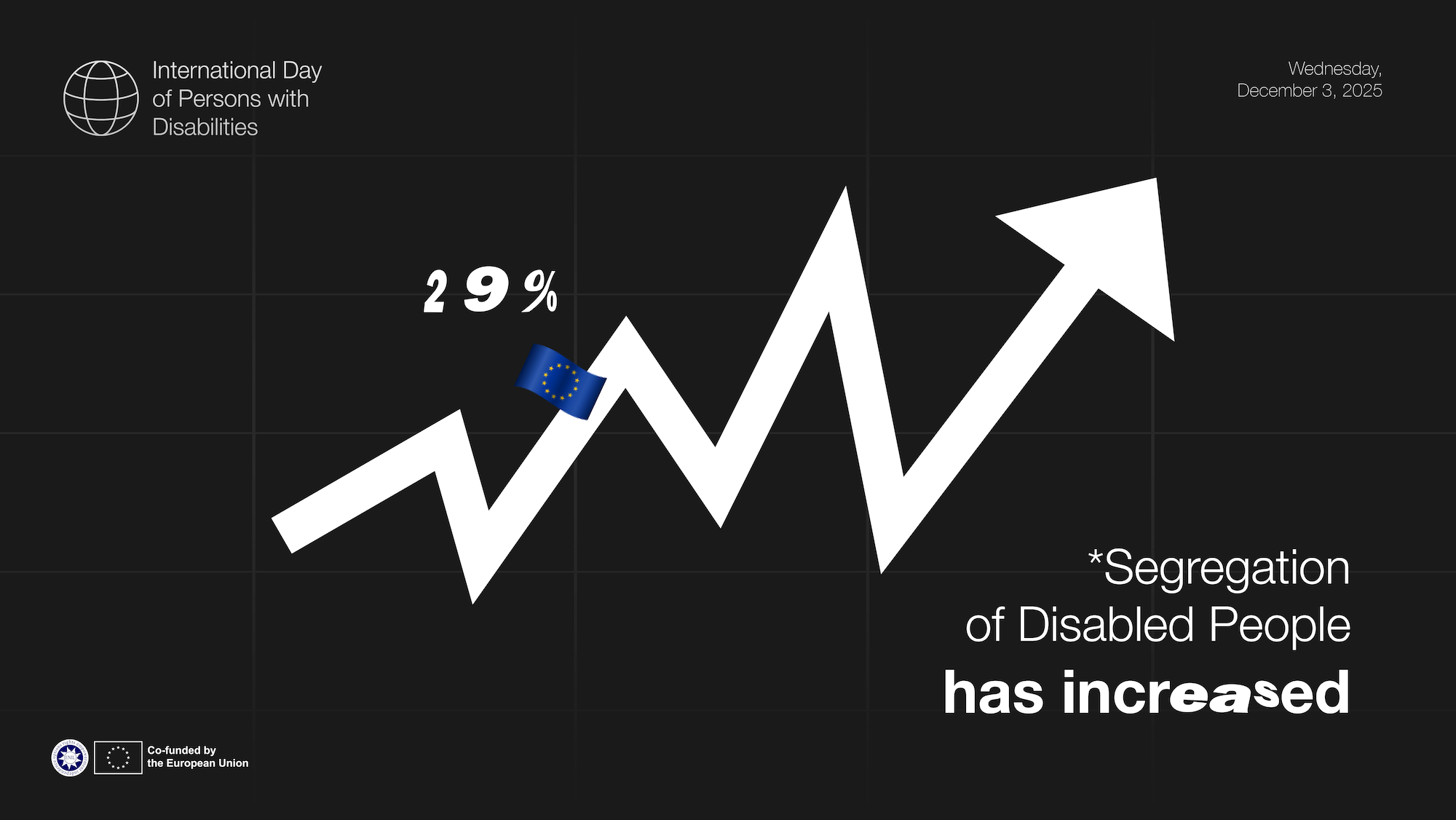Our advocacy work on our Proposal to the European Commission Guidance on Independent Living continues. To improve outreach among national governments, we had invited the government of Spain, who is currently holding the presidency of the EU Council to meet with us.
By Florian Sanden, florian.sanden@enil.eu
On Wednesday the 14th of July ENIL Policy Coordinator Florian Sanden and Human Rights Officer Rita Crespo Fernandez met with representatives of the government of Spain. Ignacio Campoy Cervera, adviser at the Royal Society on Disability and Berta González Antón adviser to the secretary of state on social rights, participated in the meeting.
We invited the Spanish to discuss our Proposal to the European Commission Guidance on Independent Living. The policy initiative is one of the flagship projects within the European Strategy on the Rights of Persons with Disabilities 2021-2030 (ESRPDs). Its stated objective is to “enable persons with disabilities to live in accessible, supported housing in the community, or to continue living at home”. The government of Spain is holding the presidency of the Council of the EU and thus in an excellent position to shape the agenda in favour of issues around the rights of disabled people.
Shaping the planned Guidance is one of the most important objectives of ENIL under the current ESRPDs. Last spring we started working on our proposals by starting our independent living task force, a working group consisting of disabled members. Through a collaborative process, our Proposal to the European Commissions´ independent living Guidance was produced.
This spring we intensified efforts to communicate our recommendations to policy makers. Our document was presented during an event at the European Parliament in the presence of representatives of the European Commission and Members of the European Parliament (MEP). We also had individual meetings with MEPs and used official working groups we participate in to make statements based on our Proposal.
During the meeting we presented some of the contents of our Proposal. We explained that independent living means that disabled people have choice and control over their lives and can take all the decisions themselves. It means participation in all areas of life on an equal level as non-disabled people do.
Personal assistance (PA) is a key service to enable disabled people with support needs to live independently. PA can have a transformative effect on a person’s life, ending institutionalization at a nursing home or a long-stay hospital and making it possible to re-join normal life. A good example to clarify the importance of this service is the biography of Adolf Ratzka who due to personal assistance could leave the hospital, pursue an education, a career and have a family. Almost all EU countries have a publicly financed personal assistance scheme in place. However, all of them suffer from serious shortcomings. Due to limited funding, it can be very difficult or impossible to access the service. In the Spanish region of Andalucia there are currently only 11 users of personal assistance. This very low number of users benefitted from a pilot project which is scheduled to be discontinued. On of the users is a member on ENIL. If no service to replace his PA will be offered, he will be at risk of institutionalization. We want governments to increase investments, ensure every disabled person with a need can get PA. In addition, PA-schemes need serious reform. Many don´t allow institutional residence to apply, place restrictions on the times the services is available or the tasks assistants can perform.
A second topic from our Proposal we choose to present, is access to housing. In many places housing prices are increasing rapidly. Given accessible housing is already rare and expensive, this overall trend makes the situation of disabled people on the housing market worse. In addition to high prices, disabled people face various other barriers when trying to access housing, for example discrimination by landlords. Governments need to take steps to increase the stock of accessible housing, make sure building standards are enforced and support disabled people who are victims of discrimination.
Lack of services, housing and poverty can be factors that lead to deinstitutionalization. Independent research indicates that Europe achieved no progress in deinstitutionalization. To chance this, we need for example better access to personal assistance and housing would significantly support deinstitutionalization in the EU.
Ignacio Campoy from the Royal Society on Disability explained that personal assistance. Deinstitutionalization and housing are topics of interest for Spain. He agreed that many rights were not yet sufficiently guaranteed. The independent living movement existed and Spain too and many civil society organizations were very active, for example Solidaridad Comunitaria. The proposals of ENIL would fall within the framework of activities of the government.
Berta González, adviser to the secretary of state, said the current government had, from the beginning, had the objective to change support models. A series of investments had taken place. Aspects of intersectionality were taken very seriously, all groups affected by dependency direct support models should benefit. So far older people were left out of efforts to deinstitutionalize.
Reforms of and investments into the care sector were taking place to reduce dependency and promote personal autonomy. As far as older people were concerned, the government had signed an agreement with the Autonomous Communities, the Spanish regions, containing minimum requirements in the care sector. Residencies should not be built outside urban areas and not have more than 30 inhabitants.
The government had also come to an agreement with the Communities on personal assistance according to which existing rules linking PA to employment, limiting the age and mixing it with household services had been improved. Spain was also working on a disability strategy, involving the participation of 18000 submissions under the consultation process.
Together with the university Carlos III a study on DI processes in Spain was being done. Problems concerning restrictions on life choices, good practices and examples from other countries were being taken into account.
To make progress on DI, the government had mobilized EUR 156 million to support 20 social innovation projects implemented by 20 third sector organisations. The goal was to find solutions to move deinstitutionalization forward and prevent institutionalization.
As far as the presidency of the EU Council was concerned, there was the difficult question of the European Care Strategy, a legislation placing much emphasis on the rights of care workers and little on the rights of the people placed under care. Because this important factor had been omitted the strategy represented a step in the wrong direction.
The representatives of ENIL and the government of Spain agreed to continue cooperating and exchanging information.



